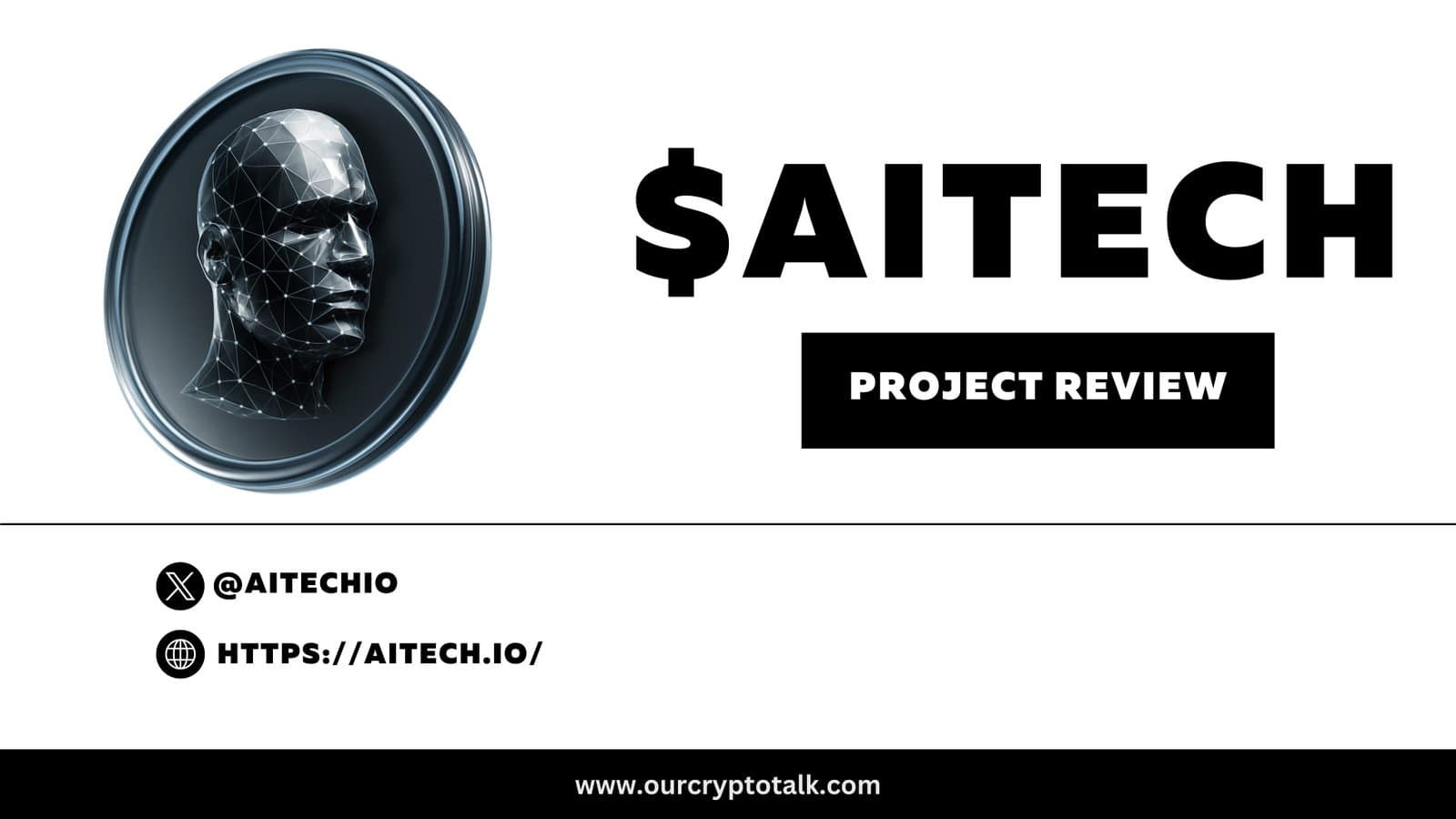
AITECH Review: AITECH powers a decentralized AI economy with GPU marketplaces, green data centers, virtualization, and autonomous AI agents.
Author: Akshat Thakur
AITECH is the flagship project of Solidus AI Tech, a company that evolved from Ethereum mining into a leader in high-performance computing (HPC) and AI infrastructure. Its mission is to establish a decentralized, agent-driven AI economy where individuals, enterprises, and institutions can seamlessly access compute resources, AI applications, and autonomous agents. By combining cutting-edge AI data centers, decentralized compute marketplaces, and a modular AI application ecosystem, AITECH is addressing the urgent global demand for scalable AI infrastructure.
The project is positioned at the convergence of AI, blockchain, and DePIN (Decentralized Physical Infrastructure Networks), sectors that are expected to drive technological transformation in the next decade. As AI becomes central to decision-making, creativity, and business processes, centralized models controlled by large corporations raise concerns about accessibility, trust, and systemic bias. AITECH’s ecosystem is designed to counter these issues by enabling democratized AI access, verifiable governance, and regulatory compliance.
Its infrastructure emphasizes eco-friendly AI data centers, GPU virtualization, and tokenized incentives that allow enterprises, SMEs, and individuals to participate in the AI economy. By also introducing retail-facing AI products such as AvaChat and AVA agents, AITECH creates a user-first experience that broadens engagement beyond enterprise-level adoption. This dual focus on institutional trust and retail accessibility makes AITECH one of the most ambitious and versatile projects in the decentralized AI landscape.
Distribution:

The project is led by Solidus AI Tech, transitioning from Ethereum mining to enterprise-grade HPC and AI solutions. The team emphasizes regulatory compliance, eco-friendly infrastructure, and integration with both Web2 and Web3 ecosystems. Its mix of blockchain developers, AI researchers, and enterprise experts strengthens execution potential.

| Project | Core Focus & Innovation | Compliance / Identity | Performance & Notes |
|---|---|---|---|
 Solidus AI Tech (AITECH)
Solidus AI Tech (AITECH)
| Hybrid AI + HPC infrastructure with government-grade data centers and blockchain-based access. | Fully KYC/AML-compliant; EU-regulated. | Enterprise-grade compute; semi-centralized for security and reliability. |
 0G (Zero Gravity)
0G (Zero Gravity)
| Decentralized AI OS with modular storage, DA, and compute. | Permissionless. | Full-stack AI infra; early-stage, highly scalable. |
|
| On-chain AI inference for dApps and smart contracts. | Permissionless (curated infra). | Optimized for devs; lacks native compute/storage. |
|
| Decentralized AI marketplace of subnets. | Permissionless. | Largest active ecosystem; no compliance layer. |
|
| |||
|
| |||
|
|
AITECH represents a bold vision to decentralize and democratize access to AI through compliant infrastructure, compute marketplaces, and autonomous agents. By leveraging HPC data centers, GPU virtualization, and a multi-layer AI marketplace, it addresses the inefficiencies of centralized AI while inviting both institutional and retail participation.
What makes AITECH especially compelling is its dual focus: delivering enterprise-ready, regulation-compliant infrastructure for governments and large corporations while simultaneously offering accessible AI agents, staking, and governance tools for everyday users. This balance is rare in the industry and demonstrates the project’s ambition to be more than just another DePIN or AI marketplace it aims to create a fully functional agentic AI economy.
Its strengths lie in compliance readiness, retail engagement, and a deflationary token economy, though challenges remain in competition and adoption speed. Success will depend on execution, ecosystem partnerships, and the ability to attract developers to its AI marketplace. If AITECH achieves these goals, it could evolve into a foundational layer of decentralized AI infrastructure, enabling everything from enterprise-scale deployments to consumer-facing applications.
Ultimately, AITECH has the potential to redefine how people interact with artificial intelligence. By making AI accessible, verifiable, and decentralized, it aspires to create a system that empowers individuals and institutions alike. If it fulfills its roadmap, AITECH could become one of the most important projects bridging the gap between centralized AI monopolies and a fair, inclusive AI-powered future.

Explore More Reviews to Level Up Your DYOR Game.


| Decentralized ML training marketplace. |
| Permissionless. |
| Focused on training verification; not full-stack. |
| Decentralized GPU/cloud marketplace. |
| Permissionless. |
| Cost-efficient compute; no AI verification/compliance. |
| GPU DePIN network for AI workloads. |
| Permissionless. |
| Rapid GPU growth; compute-focused only. |